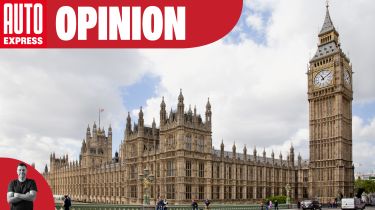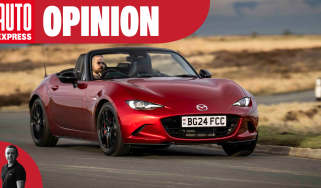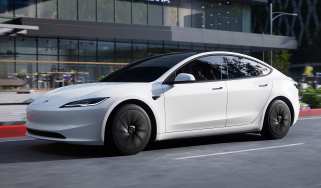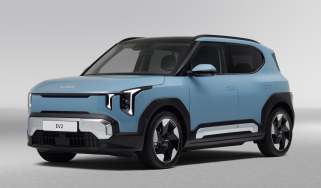This Autumn Budget doesn’t cure car buyer uncertainty and doubt, it makes them worse
Steve Walker thinks the Autumn Budget measures will fail to generate the consumer confidence that the car market needs.

The Chancellor presented a mixed bag of measures in her Autumn Budget that probably don’t amount to the kick in the family finances many motorists feared, but will still have far-reaching effects for the car industry and its customers.
Above all, the Budget piles on more of the uncertainty that has shaken consumer confidence and left car manufacturers chasing shadows over recent years. The collection of deferred tax rises and promised investment measures creates a complex picture that on balance seems more likely to deter new car purchases than encourage them.
The ‘eVED’ pay-per-mile tax on EVs and plug-in hybrids due in 2028 definitely raises more questions than answers, as Mike Rutherford highlights on Page xx. How will such a scheme be implemented? Who will administer mileage checks on new cars that don’t need an MoT and the rebate system if you’re under your predicted mileage at the end of the year? Will we be charged for miles driven outside the UK?
Details are predictably sketchy and even if they weren’t, a lot can change between now and 2028. What we do know is that negative headlines about the rising cost of EVs have already been written.
The freeze on fuel duty and the retention of the 5p cut will be welcomed by drivers, but it’s only a stay of execution. In September 2026 fuel prices will be on the rise again. Buyers may well be pushed towards more fuel-efficient cars by this and some of those taking the jump to EVs will be helped along the way by a boost in funding for the Electric Car Grant that should extend the scheme into 2030.
By that stage, if the proposed ban on the sale of new petrol and diesel cars holds firm, EVs and some hybrids will be the only cars you’ll be able to buy in the UK. But we don’t yet know exactly which hybrids will be allowed or what the impact on buyer behavior will be as the ban draws ever closer. Plug-in hybrids may even be affected more severely by the pay-per-mile tax than EVs. They were already expensive to run without regular charging and the 1.5p per mile charge on top of normal VED will make them more so.
In the shorter term, raising the threshold for the Expensive Car Supplement on VED tax to £50,000 will make many ordinary EVs costing a little over £40,000 usefully more affordable to run. This should be a positive move for EV uptake, and we’re told that the pay-per-mile tax on EVs will also generate more funds for the never-ending quest to rid our roads of potholes. Another mark in the ‘plus column’.
There’s extra support for the rollout of electric car charging infrastructure, but nothing was announced to address the bigger issue of charging costs. A VAT cut from the 20 per cent rate charged on public charging to match the five per cent paid on domestic electricity would have made EVs more attractive for those who can’t charge at home. As it is, these drivers – who are often in towns and cities, where EV air quality benefits would be felt most – will be stuck paying fuel prices that are scarcely any cheaper than what you’d shell out to run a petrol car.
The pay-per-mile tax, of course, will only make it harder for those forced to rely on public chargers to choose an EV. Compare a typical VW Golf with an ID.3 EV and the petrol Golf costs around 12p per mile to fuel, while the ID.3, charged at home on the 26p per kWh Ofgem price cap, costs 6p. If you’re charging the ID.3 at an average 53p slow public charger, it’s 12p per mile and the 3p per mile eVED tax will make it more expensive to fuel than the Golf. The average price of rapid charging is 76p per kWh!
Just when car buyers could have used a positive and clear Government message to make the case for EVs, the Chancellor has presented them with more sums to do, and doubts over the future to mull over. Such is life.
Did you know you can sell your car through Auto Express? We’ll help you get a great price and find a great deal on a new car, too.
Find a car with the experts








